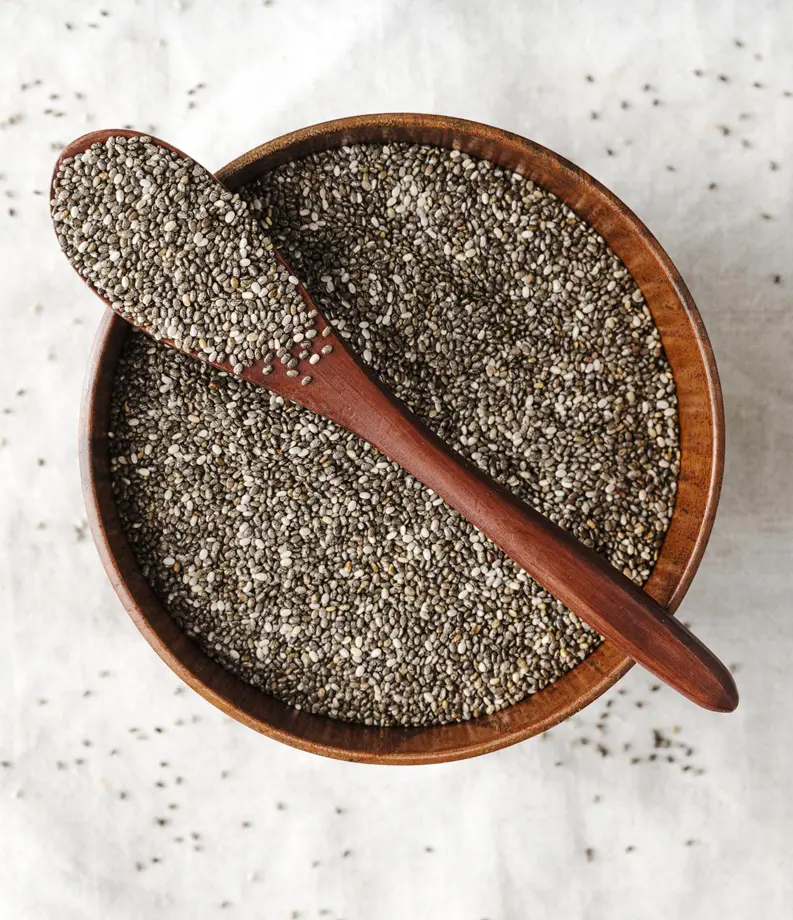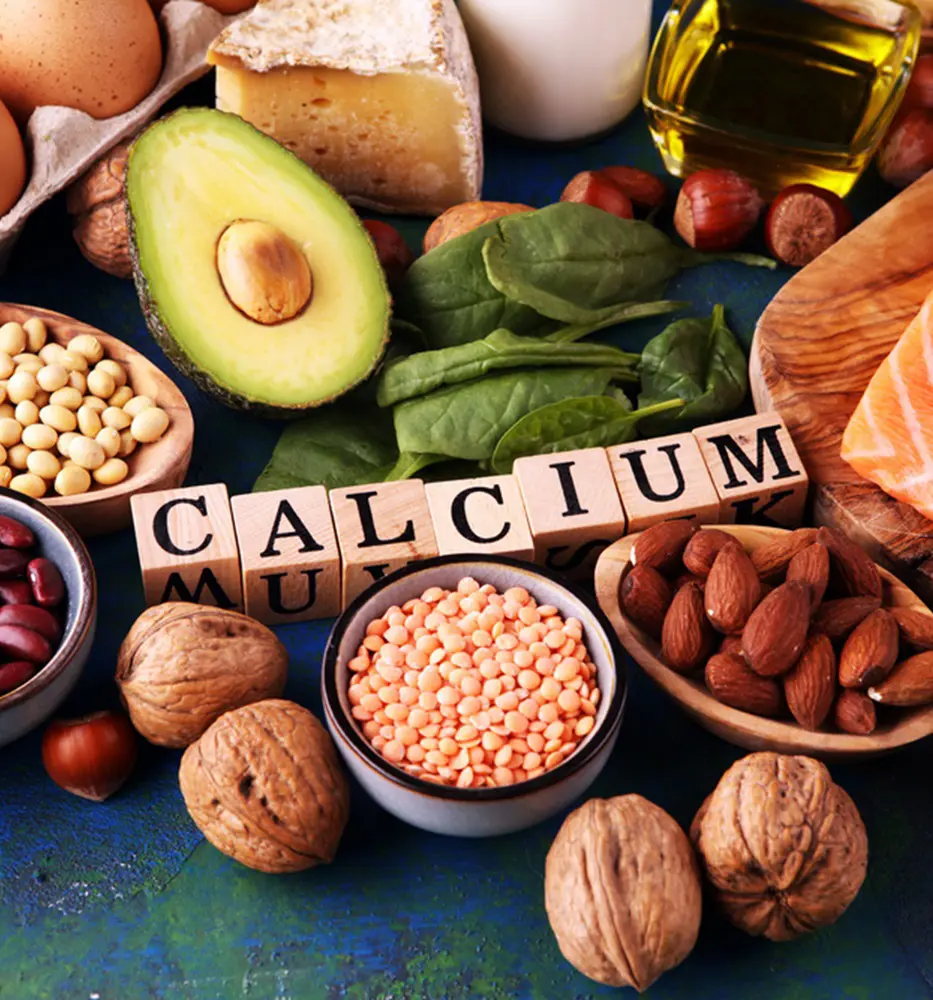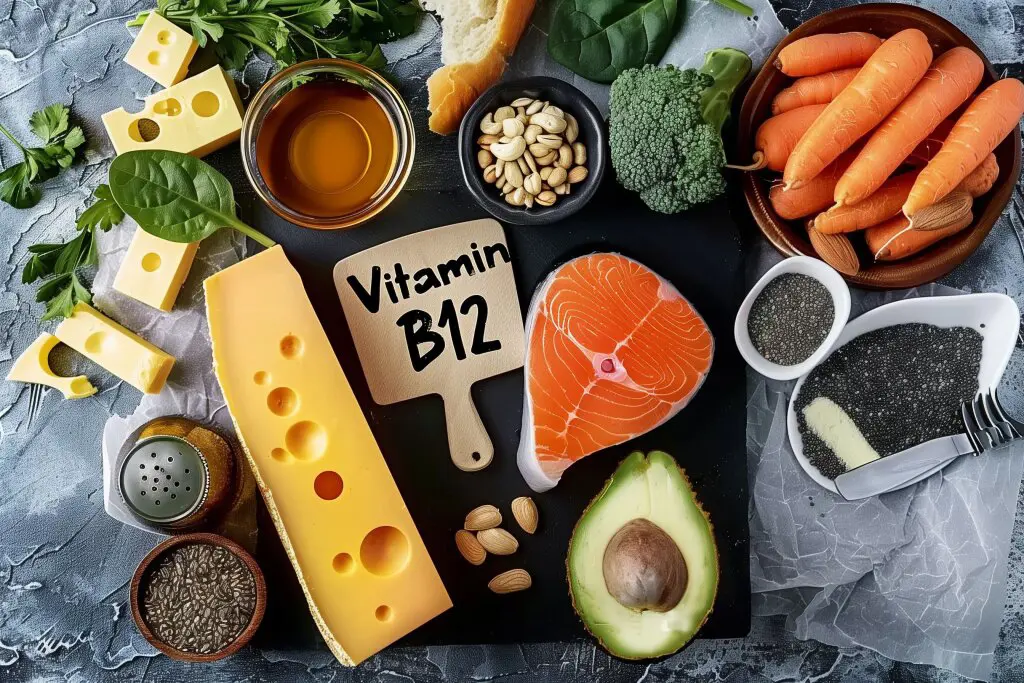25 Calcium-Rich Foods That Will Boost Your Bone Health
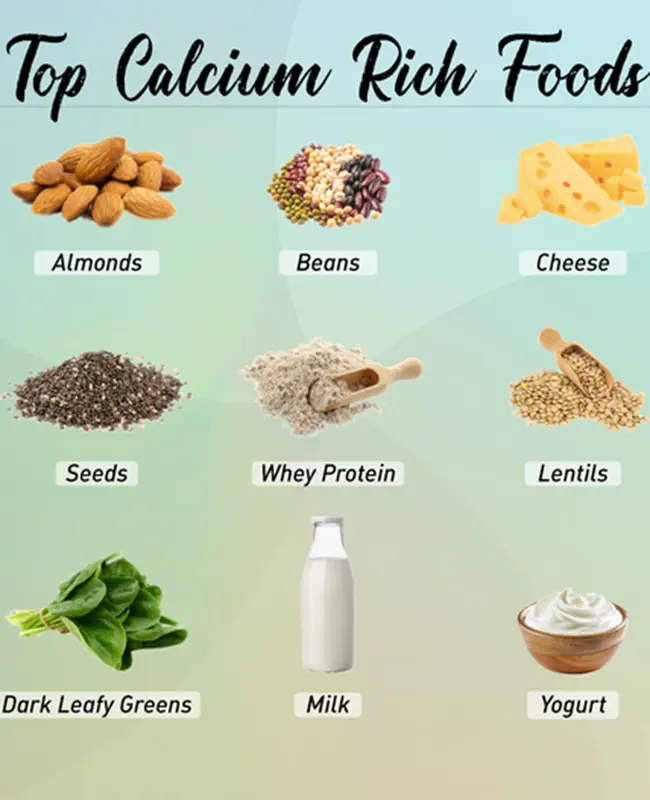
This post may contain affiliate links. If you make a purchase through links on our site, we may earn a commission.
Calcium is a crucial mineral for the human body which helps strengthen bones throughout your lifetime.
The daily recommended allowance of the micronutrient is anything over 1000 milligrams. Since the human body does not produce calcium, there is a need to locate diets that contain calcium to help maintain this level. The following are 25 calcium-rich foods you can introduce into your diet:
1. Sardines

Sardines are indeed cherished as one of the healthiest foods as they are a good source of calcium. It is quite interesting that a 100-gram serving of canned sardines has around 382 mg of calcium.
These fish are particularly suitable for those individuals who have no desire at all to consume products made from milk.
2. Kefir

Kefir is a refined, distilled milk drink, that originates from the hilly areas that separate Asia and Europe. You can simply obtain 300-400 mg of calcium from one cup of kefir milk (approximately 240 ml).
This food product also comprises protein and vitamins like B12, B2, K2 and magnesium. Research indicates that kefir consumption can positively impact bone mineral density (BMD). Its regular consumption could help mitigate bone loss and reduce fracture risk.
3. Leafy Greens
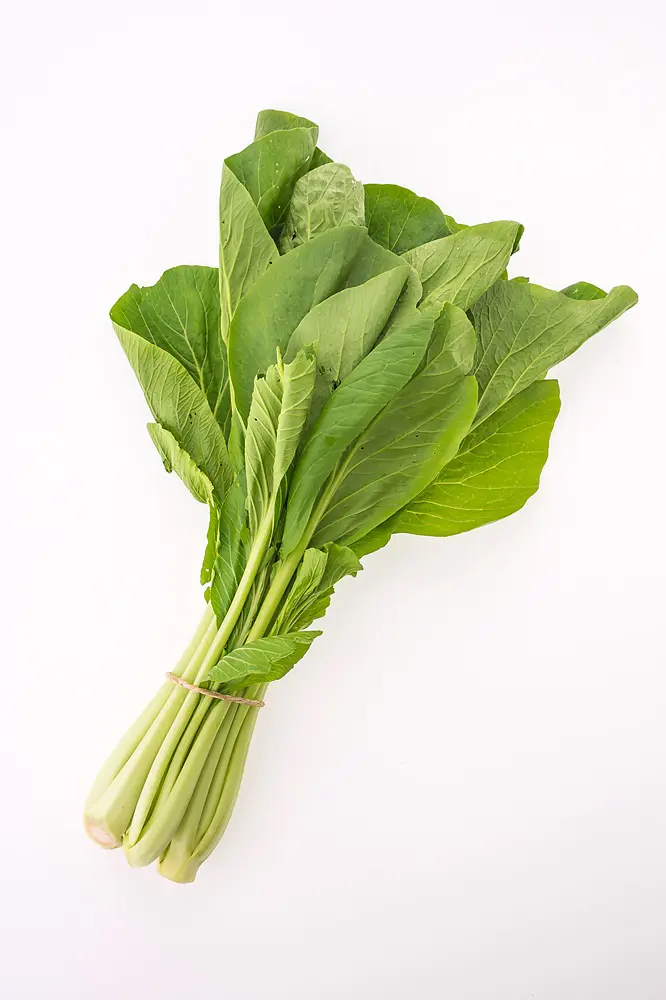
1 cup (190 grams) of cooked collard greens has 268 milligrams of calcium or 21 percent of the Daily Value.
Therefore it is advisable to add green leafy vegetables to one's diet to enable the body to acquire those important nutrients that help the body gain the necessary strength and health.
4. Milk
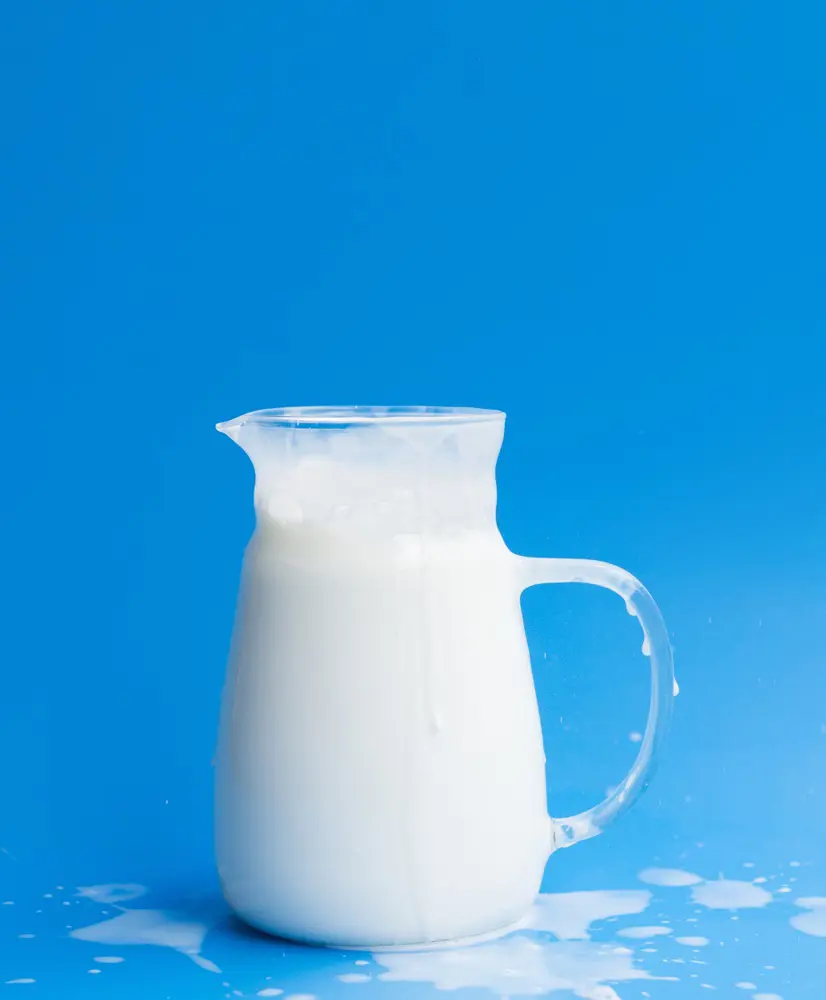
Milk comes among the top and easily accessible sources of calcium. For instance, one cup of cow’s milk (237ml) contains 306-325mg of calcium. Also, goat’s milk as stated is a calcium-containing milk offering 327mg for a 237ml serving size.
Aside from calcium, protein, potassium, and vitamins A and D, consuming milk has several health considerations for the body.
5. Yogurt

Discussing the calcium level, yogurts like plain yogurt have 450 mg of calcium per cup (approximately 245 grams), which is a pretty good amount. However, calcium is a little higher in low-fat yogurt because this yogurt provides up to 415 mg per ounce.
Many yogurts also contain probiotics which are helpful bacteria that can improve immunity, increase heart health, as well as improve digestion. Due to its exceptional nutritional profile, its daily intake has been linked with lower vulnerability to heart disease and type 2 diabetes.
6. Tofu

Tofu contains 350mg of calcium per half-cup serving. Thus, it is an ideal source of calcium for vegans and vegetarians particularly those who have dropped dairy products.
Besides calcium, tofu contains all the necessary amino acids that are required in the human body. Tofu's benefits are endless, all due to beneficial nutrients such as iron, magnesium and various vitamins as part of nutritional requirements.
7. Cheese

Parmesan cheese has 242 mg of calcium per ounce (28 g). But as for soft cheeses like the French Brie, these dairy products are probably lower in calcium. For example, 1 ounce (28 grams) of Brie contributes 52 mg of calcium or 4% DV only.
Besides calcium, cheese contains other nutrients such as protein. Specifically, a cup of cottage cheese contains approximately 23 grams of protein.
Related: Cottage Cheese Nutrition And Health Benefits
8. Beans and Lentils
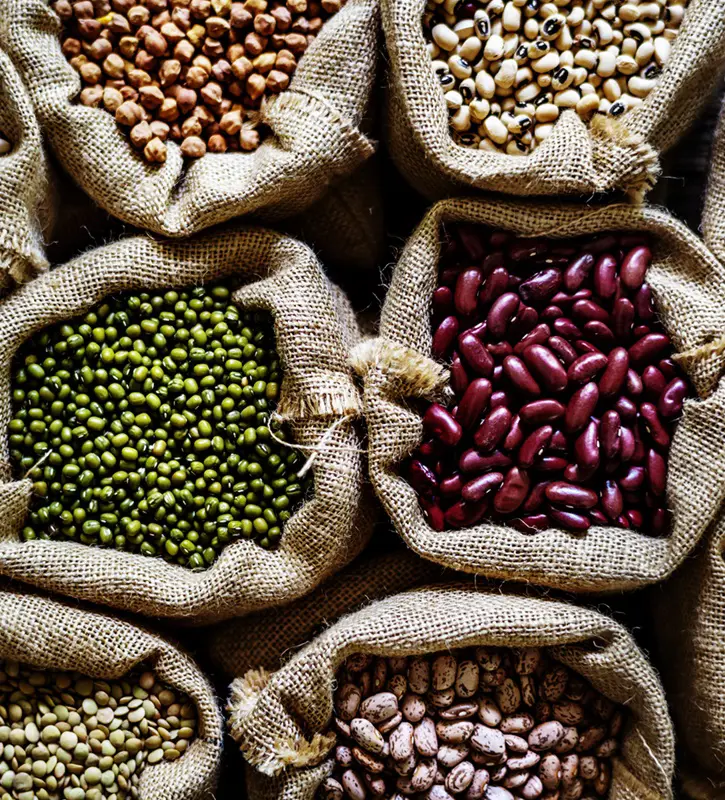
Beans and lentils provide a significant amount of calcium. About 172 grams of winged beans constitute almost 244 mg of calcium content.
Since they are also generally high in fiber, folate, iron, potassium, and magnesium and low in fat, this supports digestive health, heart health and blood sugar levels.
9. Whey Protein

Not only protein, but whey powder is also an exceptional source of calcium providing approximately 160 mg or 12% of the DV at a serving 1.2-ounce.
Since it is an excellent protein source and full of rapidly digested amino acids, it helps promote muscle growth and recovery. Furthermore, it has also been linked to increased weight loss and improved blood sugar management.
10. Seeds
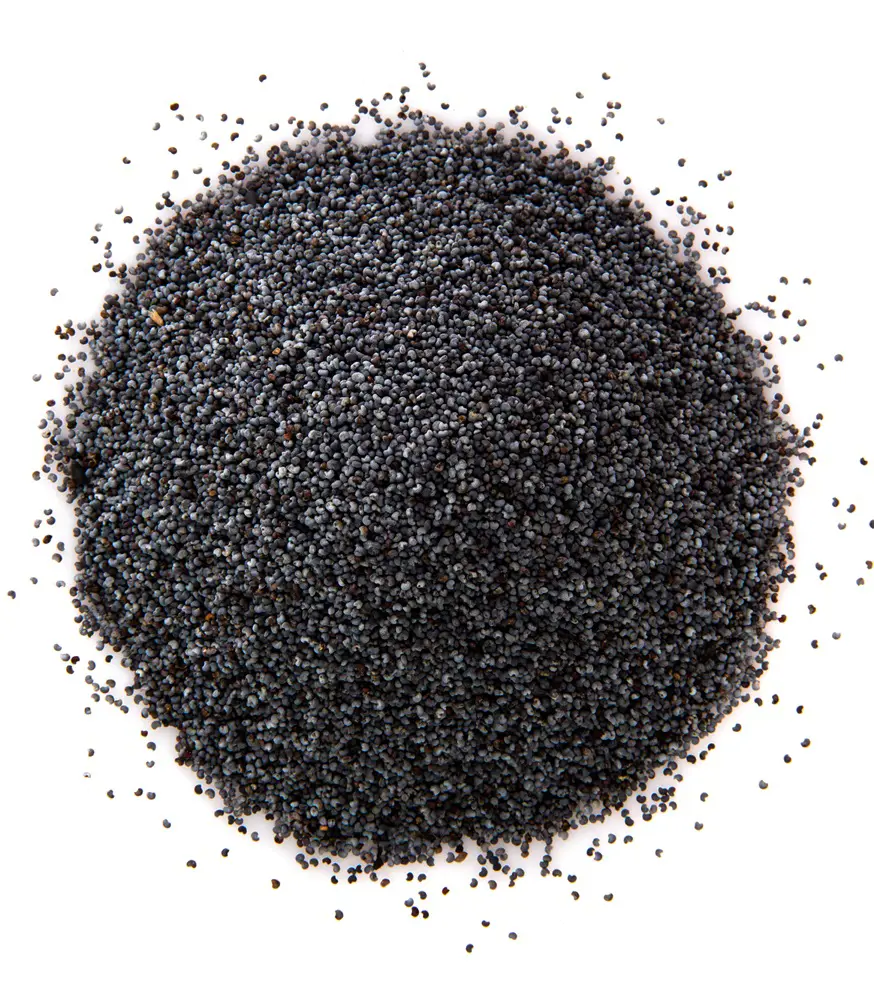
Seeds are simply small beans that we have been using in dishes or diets. They are packed with nutrients and rich in calcium more than any other food product. A 1 tbsp (9g) of poppy seeds contains 127 mg of calcium while sesame seeds contain 88mg for the exact serving size.
Besides calcium, seeds offer other nutrients like protein and healthy fat. Seeds such as chia seeds are some examples of plant-based omega-3 fatty acid sources. There are a lot of seeds that can be included in one's regular dieting plan to enhance calcium intake.
11. Amaranth

Amaranth is a popular pseudo cereal with confirmed nutritional benefits and can be a good source of calcium. It is noteworthy to say that a cup (246 grams) of cooked amaranth contains about 116mg of calcium, which is 9% of the DV for adults. The amaranth leaves even contain a better calorie content compared to the cereal grains.
Besides calcium, amaranth contains proteins and other minerals that play a vital role in the development of bones.
12. Edamame
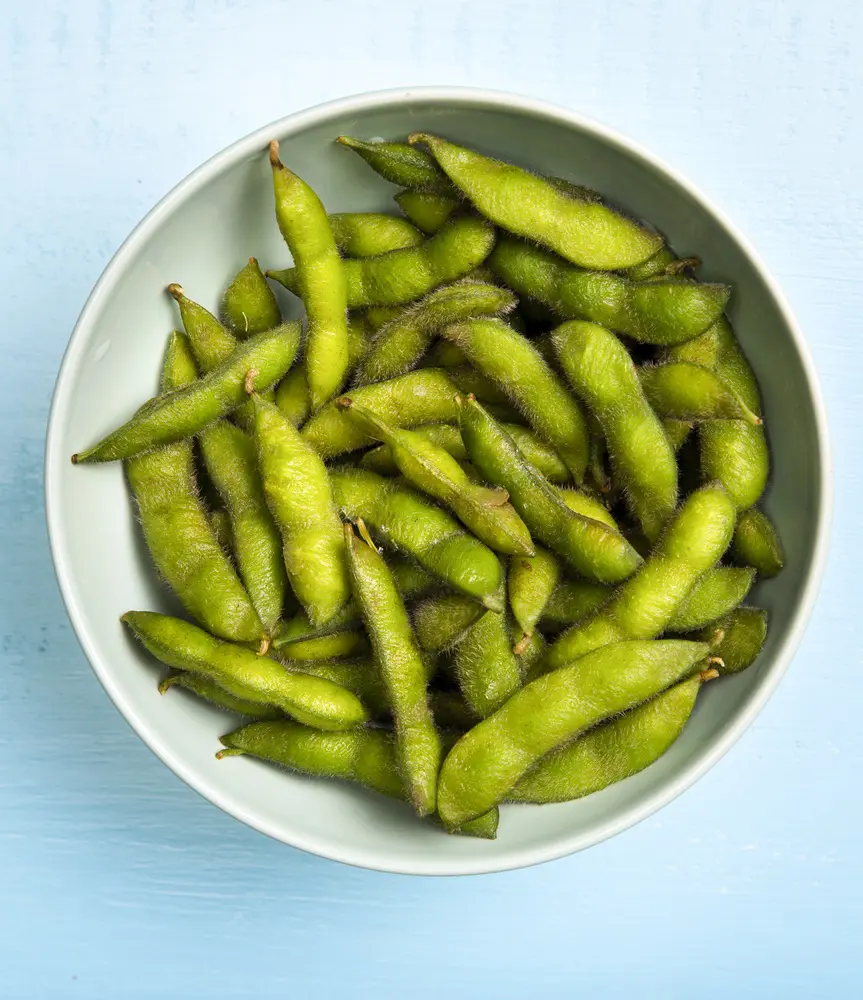
Edamame is the unbaked beans of soybean which is also a snack and contains considerable amounts of calcium. One cup of cooked edamame weighing approximately 155 grams has a calcium content of 98 mg which is about 10% of the DV.
It is also richer in protein and contains all the folates that you require daily. Surprisingly, 100g of boiled edamame contains roughly about 18.5 grams of protein. The food decreases the probability of heart disease, raises blood lipid content, and reduces fats and others.
13. Almonds
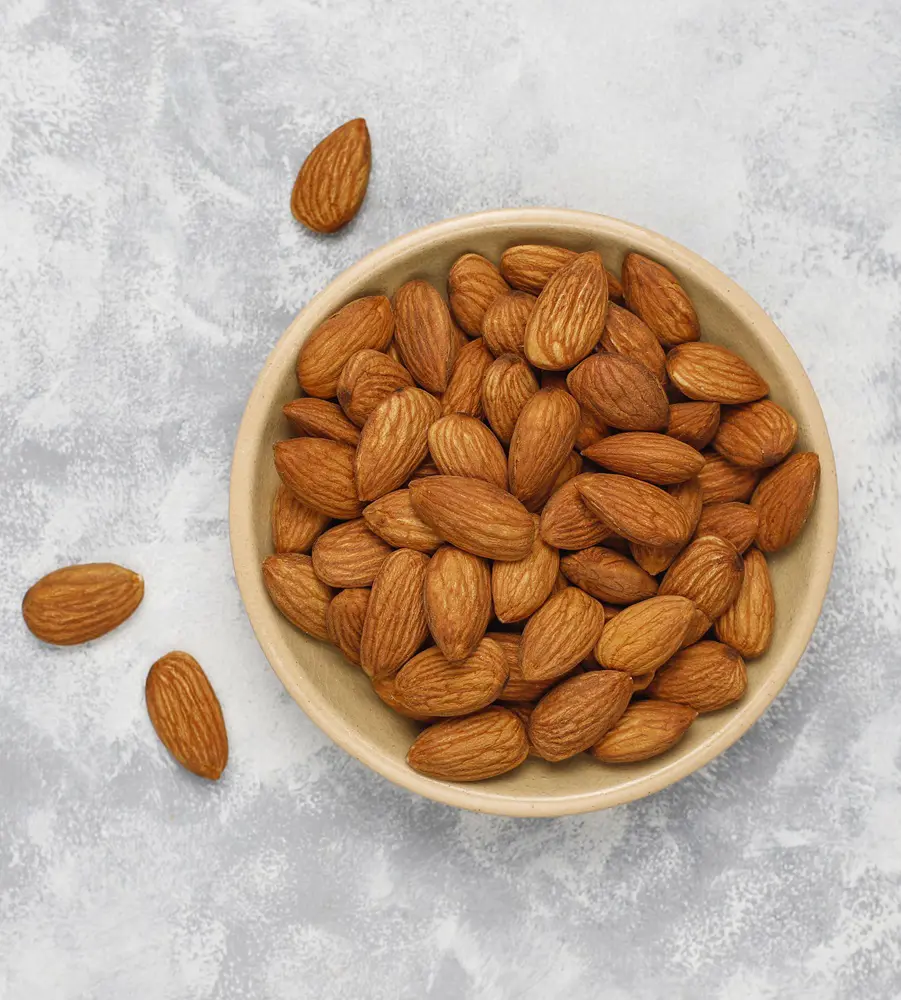
Almond, compared to numerous other nuts, is marked for rather higher levels of calcium. It has approximately 264 milligrams per one hundred grams which places it among the most calcium-rich nuts.
Almonds also contain vitamin E, fats, and dietary fiber and these contents are helpful in the reduction of cholesterol, body fat and blood pressure.
14. Okra

Okra is known to be a healthy vegetable and comprises about 82mg of calcium for every 100 grams or 8% DV.
The vitamins like A & C, the antioxidants and the dietary fiber present in the okra reduce the chances of critical diseases and facilitate digestion.
15. Figs

Figs are usually noted for their calcium and other nutritional values. Dried figs contain approximately 165mg of calcium in a 100-gram serving while fresh figs contain calcium of approximately 35mg.
Furthermore, potassium and vitamin K in this fruit help enhance bone health among people.
16. Sweet Potatoes

Sweet potatoes are a tasty vegetable that contains moderate amounts of calcium. 1 cup of mashed sweet potato weighing approximately 328g, provides 89 mg of calcium.
There is evidence that these foods are very effective in preventing chronic diseases and heart diseases, reducing high blood pressure, and preserving healthy digestion.
17. Fortified Plant-based Milk
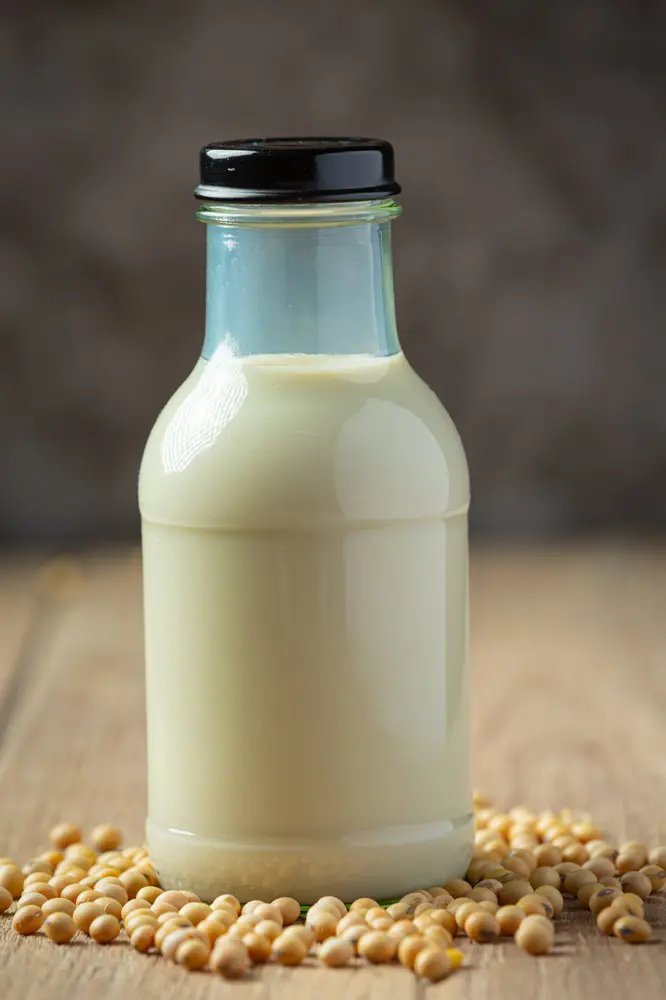
Calcium is added to plant-based milk as generally, this milk does not have calcium, a staple nutrients that exist in cow milk. A cup of fortified soy milk (about 250 ml) contains 98 milligrams of calcium.
This type of milk is among the best to be consumed by persons who have dumped dairy products.
18. Eggs

Eggs are one of the most widely recognized breakfast items, loaded with calcium up to 25 milligrams per 50 grams of boiled eggs. Apart from calcium, eggs are rich in protein and many other vitamins like A, D, E and B12.
Just by consuming two eggs per day, you can cover about 10–30% of the vitamin requirement for the human body.
19. Mulberries
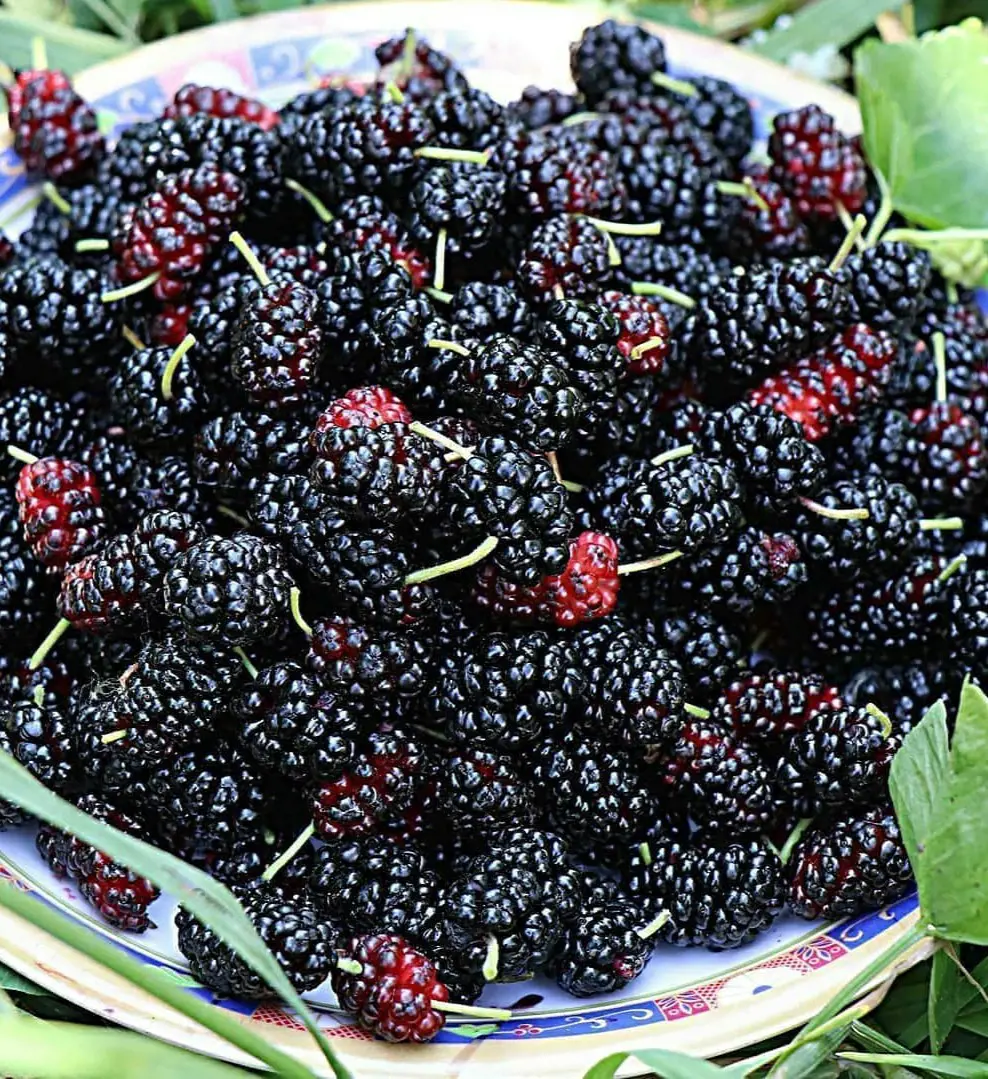
Talking about mulberries' calcium content, 100 grams of mulberries have almost 39 milligrams of calcium.
Besides calcium, mulberries are rich in iron and vitamin C, and eating them is a great way of enhancing digestion, skin health and controlling blood sugar levels. The combination of vitamin K, calcium, and iron in this fruit is beneficial in building strong bones and tissues and even in reversing the decaying system of the bones.
20. Oranges
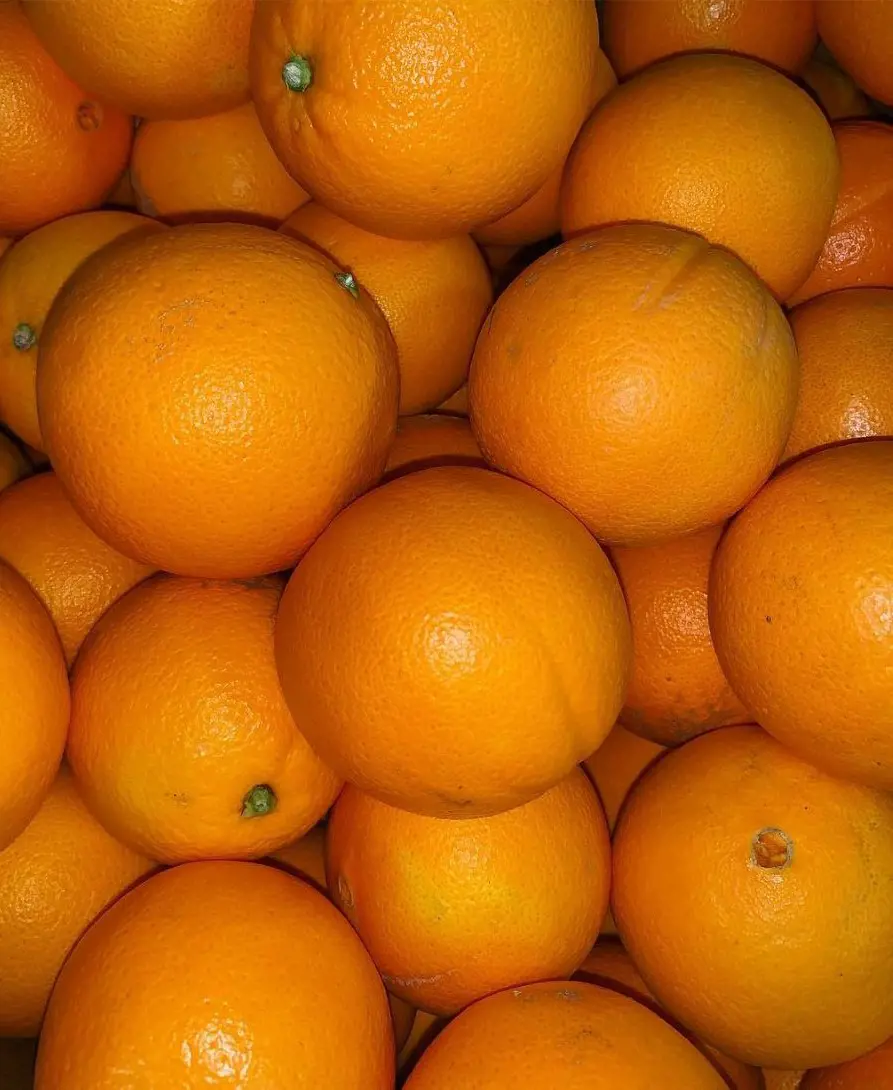
Oranges, which are popular for their vitamin C content surprisingly, do provide a modest amount of calcium. A medium-sized orange contains about 55 mg of calcium.
Although citrus fruits are not highly rich in calcium, some fruit juices are fortified with calcium content. Fortified orange juice significantly boosts calcium content, providing around 349 mg per cup (about 240 mL), which is approximately 27% of the DV.
21. Fortified Cereals

Among the most recommended cereals, the calcium-fortified cereals aim at trying to offer the body the nutrients needed in a given day. The serving of calcium-enriched cereal product may carry 1000mg or 100 percent of the daily value of calcium.
Most of the fortified cereals also contain other body nutrients such as fiber, B vitamins, iron and zinc making them suitable for breakfast.
22. Canned Salmon
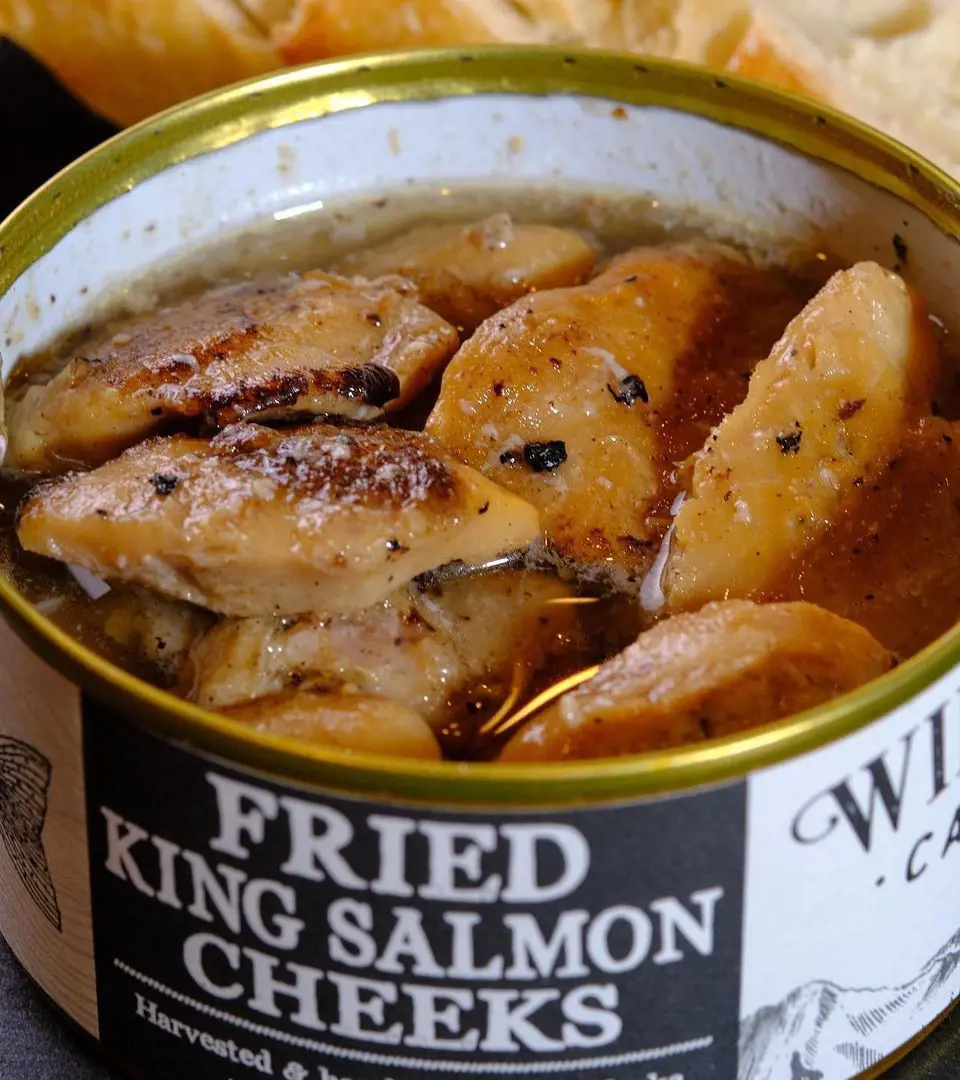
Similar to the sardines, canned salmon is filled up to the brim with calcium. According to the studies, one serving of about 85 grams of canned salmon contains 170-210 mg of calcium or 19%DV.
Essential for the proper health of heart muscle, omega-3 fatty acids found in salmon prove helpful in the case of developing a baby’s brain.
23. Rhubarb

For every hundred grams of cooked rhubarb, one gets approximately 11 percent DV for calcium, which equates to approximately 104.92 mg in a cup of diced raw rhubarb.
However, rhubarb also contains the vitamin referred to as vitamin K. This vitamin helps transport a protein that binds calcium to bones leading to better bone structures. In addition, this food has a positive impact on digestion and also helps regulate vital cholesterol.
24. Quinoa
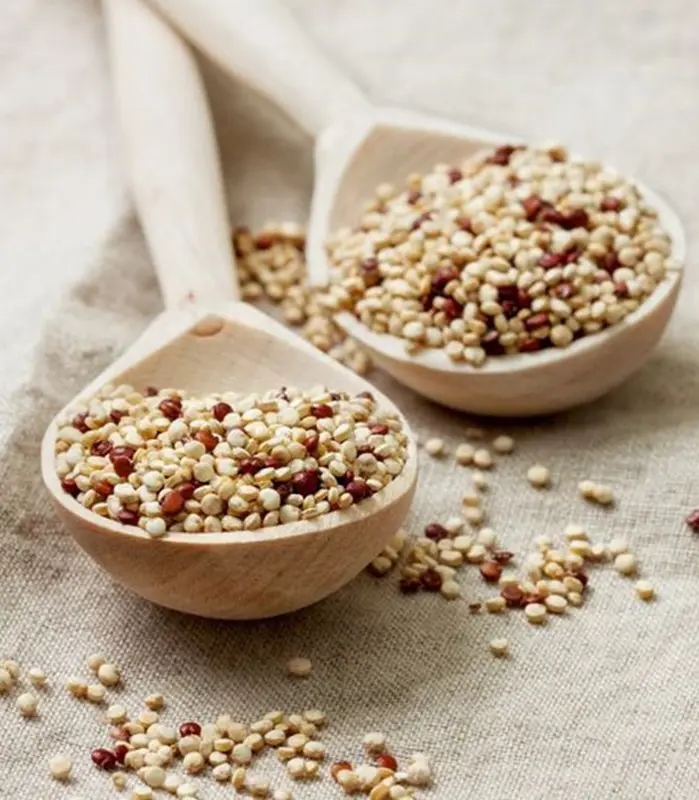
An average cup (185 g) of cooked quinoa contains 31 mg of calcium, which is 3% of the Daily Value. The number is many times higher if we consider raw quinoa.
This pseudo-cereal also contains complete proteins and other forms of minerals. These nutrients are very crucial in improving digestive health and muscle building and recovery.
25. Mollusks

The mollusk family is a large group of sea animals that usually contain quite a beneficial amount of calcium. Canned clams contain around 70mg for every three ounces.
Mollusks also contain good-quality protein, omega-3 fatty acids, vitamin B12 and minerals like iron and zinc making it a proper balanced diet.
What are the health benefits of Calcium?
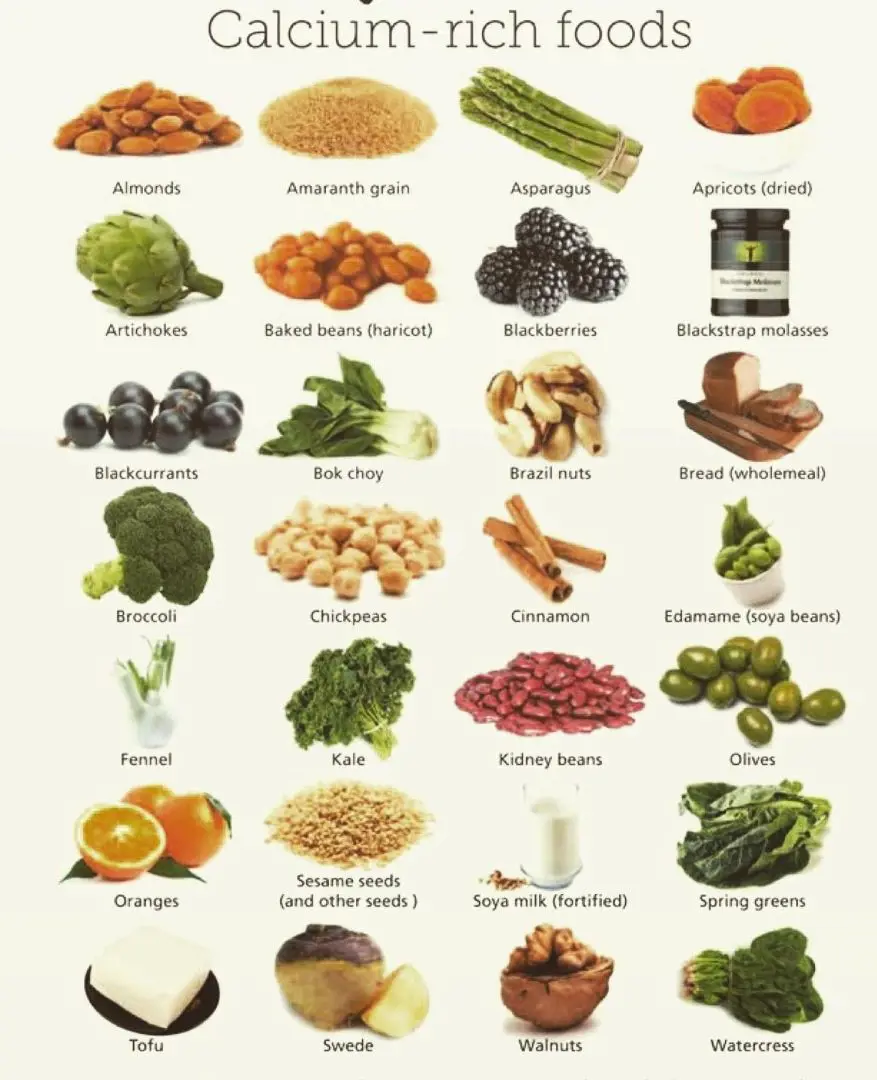
The following are some benefits of calcium:
1. Promotes Bone Health
Calcium along with Vitamin D are two important nutrients through which the bones are built, maintained and strengthened throughout life.
2. Supports Cardiac Function
Calcium is effective in relaxing the smooth muscles around your blood vessels that retain the action of your heart muscle. Studies have found that it also reduces the rate of blood pressure.
3. Improves Cholesterol Levels
Calcium has been used in managing some types of cholesterol namely, high-density lipoprotein cholesterol (HDL-C).
Calcium Dosage
Various factors including your age and stage of life may cause differences in your daily calcium requirements.
These are the general daily requirements determined by the Food and Nutrition Board:
- 0-6 months: 200 milligrams/day
- 7-12 months: 260 milligrams/day
- 1-3 years: 700 milligrams/day
- 4-8 years: 1,000 milligrams/day
- 9-18 years: 1,300 milligrams/day
- 19-50 years: 1,000 milligrams/day
- 51-70 years (Men): 1,000 milligrams/day
- 51-70 years (Women): 1,200 milligrams/day
- 70+ years: 1,200 milligrams/day
Recent posts
Nutrition
Nutrition
16 Benefits Of Coriander That Will Surprise You
Abundant in nutrients and antioxidants, coriander is an annual herb with a characteristic aroma that is extensively used around the world. Both coriander leaves (also called cilantro) and seeds are used in various cuisines around the world. Known fo...
Nutrition
Chia Seeds Benefits: 15 Reasons To Eat These Tiny Seeds
Chia seeds are tiny edible seeds obtained from the plant known as "Salvia hispanica", belonging to the mint family. Oval, gray, and filled with black and white spots, these small seeds are highly valued for their abundant nutrients and health be...
Nutrition
How Much Calcium Is Actually Needed?
Calcium is a mineral associated with bones, muscles and the nervous system in the body. Current dietary guidelines suggest different Recommended Dietary Allowances(RDAs) for adult males and females, with 1000mg being optimal for males and 1200mg for...
Nutrition
B12 Vitamin Food Sources: A Comprehensive Guide
Vitamin B12, an essential nutrient, plays a crucial role in various bodily functions, including red blood cell production, nerve function, and DNA synthesis. While animal-based foods are the primary sources of B12, certain fortified plant-based foods...
Nutrition
What Foods Are High In Cholesterol? 20 Foods To Avoid
Animal products like meat, eggs, milk, and cheese are sources of dietary cholesterol, unlike plant-based foods. For those aiming to lower their cholesterol intake, it's essential to be mindful of animal-based food choices. While some high-cholesterol...
Nutrition
18 Fat Burning Smoothies For Weight Loss
The weight loss journey is tough if you have to get on the same path day after day, facing cravings and temptations along the way. We suggest you stop making it a monotonous struggle and make it a flavorful adventure instead. One of the easiest and m...

